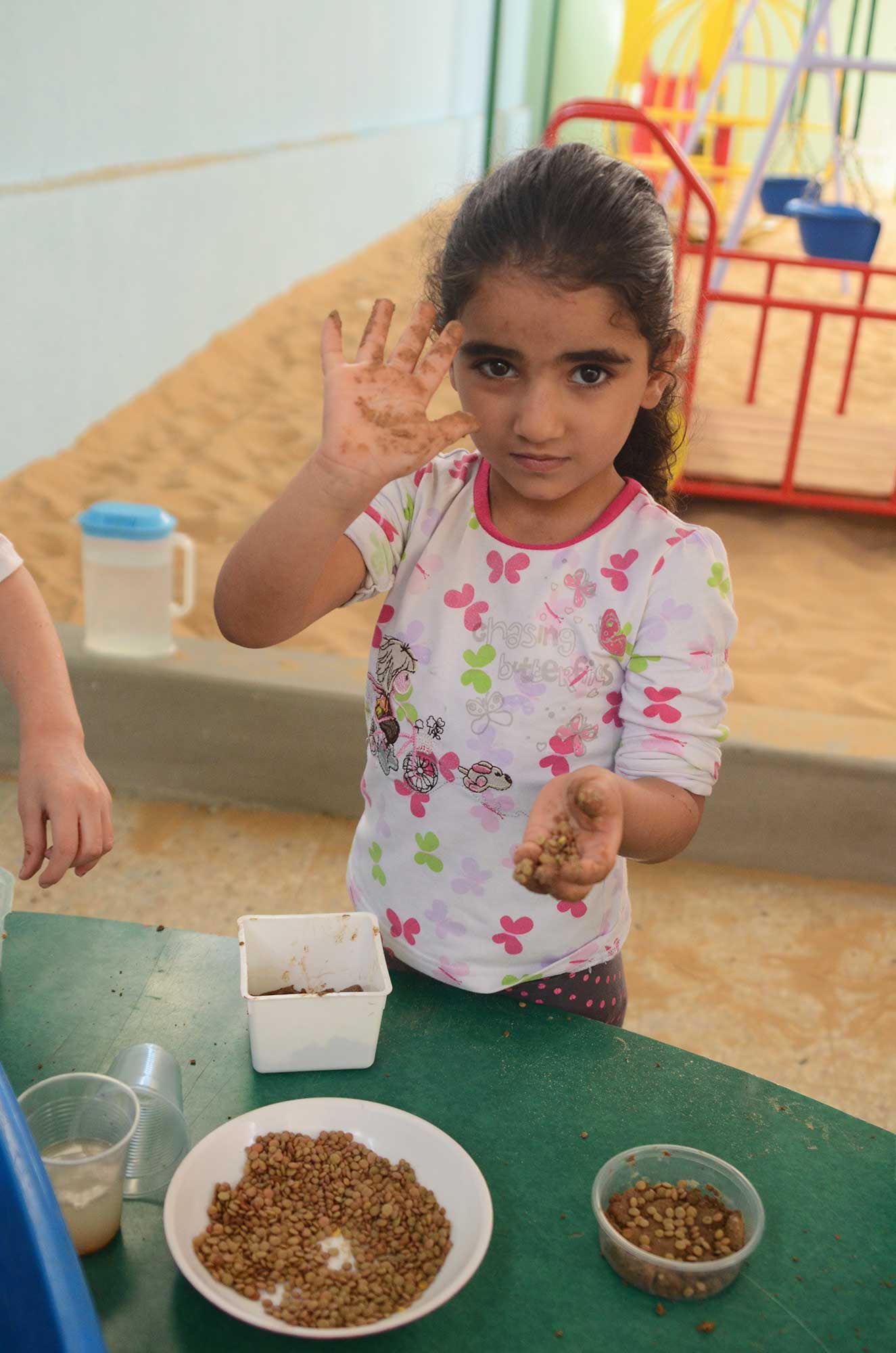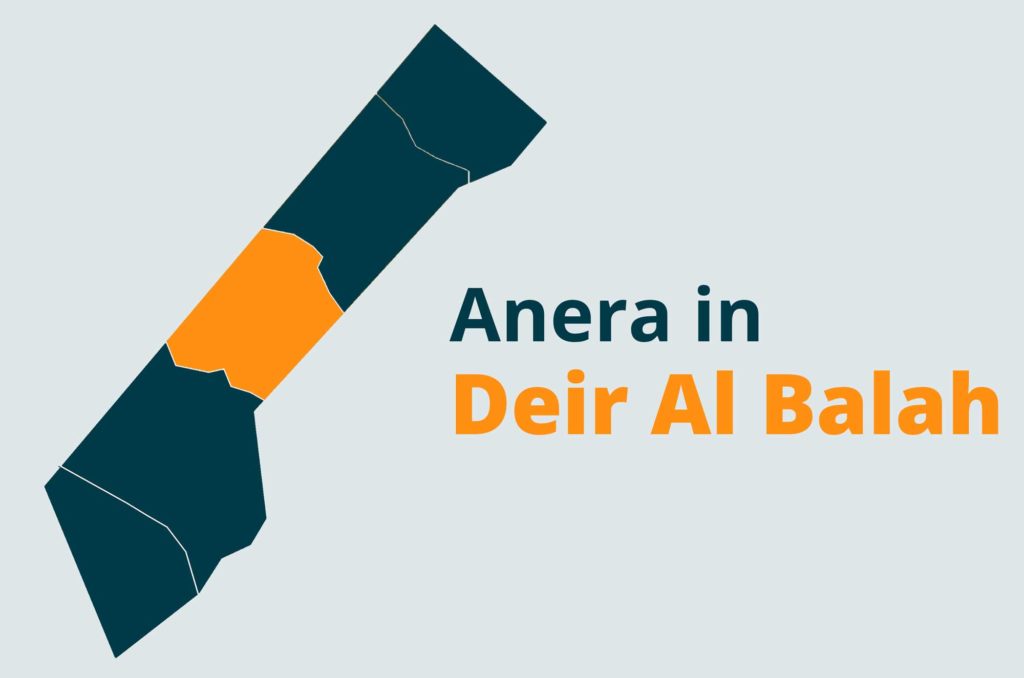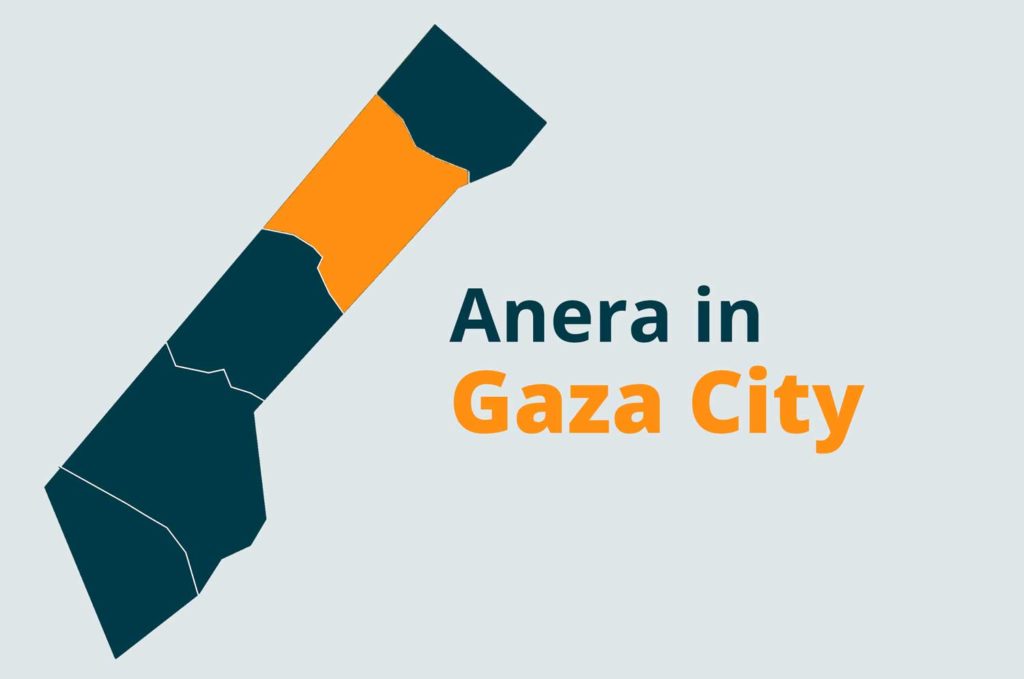Aug, 2016
Kids love playing in messy sandboxes, where just digging around can provide hours of entertainment. But playtime is also a useful learning tool for developing children’s minds and bodies.
And in Gaza, sand play helps keep kids and teachers motivated under harsh living conditions.
Sand play is part of an active learning in schools in Gaza, along with planting seeds and making pies. It’s a new concept that is very different from traditional teaching methods, which used passive and receptive learning.
Saanabel Preschool teacher Elena Naser took Anera’s preschool teacher training courses, helping her understand concepts like children’s rights and the different stages of development.
“I loved how they combined theory with hands-on experience,” she said. “Playing with sand, for example, improves hand-eye coordination, which is important for writing, putting pencil to paper from right to left and top to bottom.”


“Playing with sand improves hand-eye coordination, which is important for writing, putting pencil to paper from right to left and top to bottom.”
Another teacher, Suad Lubad, added, “Playing with sand helps children develop their motor skills. Sand also has a positive effect on children’s nerves because it increases blood circulation and activates muscles.”
In the Saanabel playground, Palestinian children work on their writing skills by drawing letters and numbers in the sand. This way, kids not only learn, but have great fun. Many added little penguins, chickens and imaginary characters to their writing exercises.
Sandbox activities can also help children grasp scientific concepts. Children learn the characteristics of dry and wet sand, how it flows through fingers, and its weight. “Wet sand is heavy and it can be turned into shapes,” said one child.


Growing Seeds of Learning in Gaza Schools
For little Saba, planting and watering seeds was the most enjoyable part of active learning. “The children love planting a few seeds in small cups,” said her teacher. “Then they monitor the growth of their little plants. They water the plants and tend to them every morning.”
Happy, Healthy ‘Pies’
Inside another preschool in the village of Ahel El Khiir, children engaged in yet another activity allowing them to explore the world through practice, experimentation, and making use of hand muscles: they followed a recipe to make their own food creation.
“When children make healthy meals, they learn and experience the meaning of health. They won’t forget what they did because it will be carved into their subconscious memories,” said Suad. “Children also learn the importance of food cleanliness, hand washing, wearing clean clothes, and keeping a clean kitchen.
The children’s eyes glowed as they took in all the colors of different foods neatly arranged on the classroom table. “We decorated our food with eyes, noses and smiley faces made with vegetables,” said preschooler Farah.
With funding from Islamic Relief USA, Anera has helped transform 10 schools in Gaza to enhance preschool education. The project includes renovation, teacher training and equipping classrooms with child-appropriate furnishings and educational materials. Anera has reached a total of 26 preschools in Gaza since 2013.




